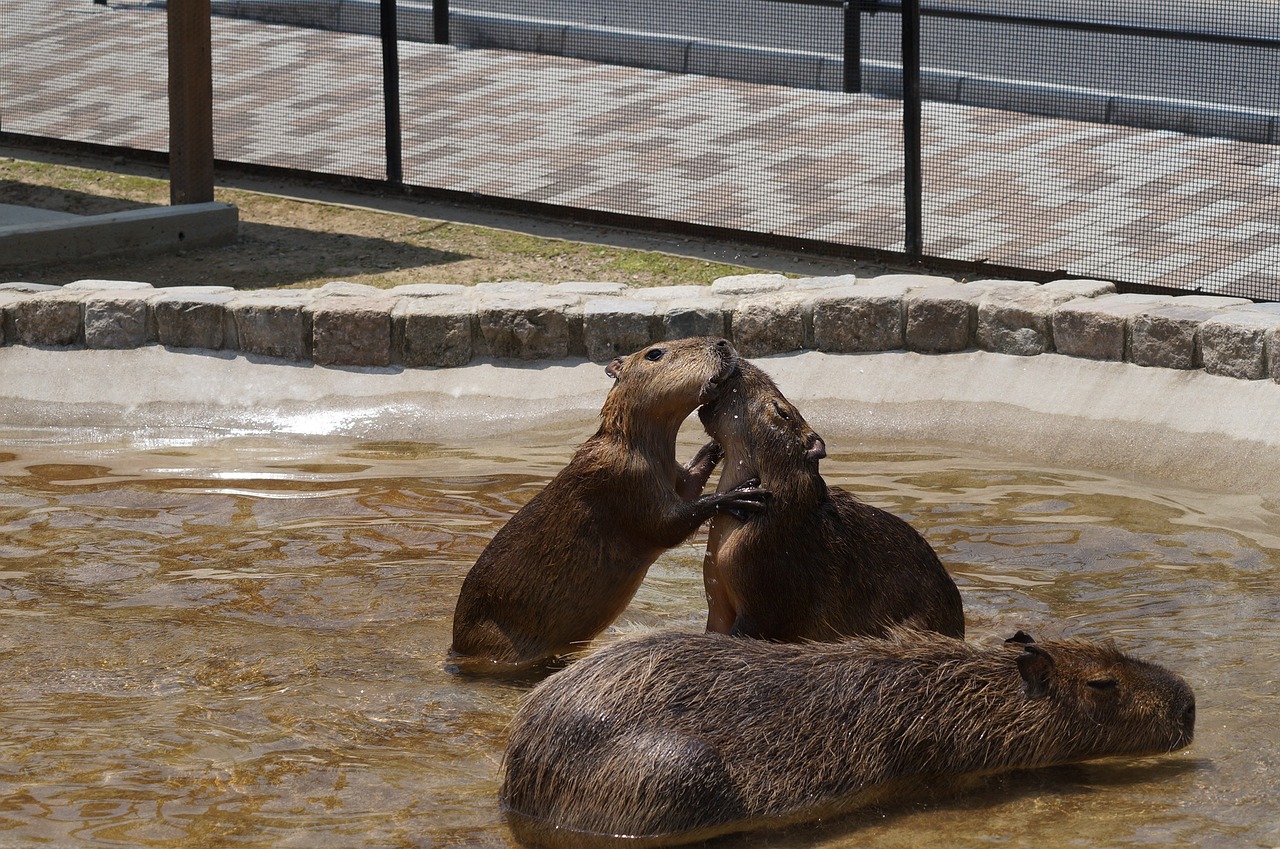Capybaras, the world’s largest rodents, native to South America, have gained popularity in recent years as exotic pets. Known for their gentle nature, social behavior, and remarkable resemblance to oversized guinea pigs, capybaras have piqued the interest of animal enthusiasts seeking unique companions. However, the question of whether capybaras can be effectively domesticated raises ethical, legal, and practical considerations. In this comprehensive exploration, we delve into the feasibility of capybara domestication, examining their natural behaviors, potential as pets, legal implications, and the challenges associated with keeping them in a domestic setting.
Understanding Capybaras: The Basics
- Natural Habitat and Behavior: Capybaras are semi-aquatic mammals primarily found in South America, inhabiting regions with abundant water sources such as rivers, lakes, and marshes. In the wild, they live in social groups, displaying strong familial bonds. Their herbivorous diet consists of grasses and aquatic plants.
- Social Nature: One of the defining characteristics of capybaras is their highly social nature. They often form groups, known as herds, comprised of several individuals. This social structure serves as a means of protection against predators and facilitates communication through vocalizations, grooming, and other behaviors.
- Reproduction and Family Dynamics: Capybaras are known for their monogamous and family-oriented behavior. They form breeding pairs that stay together for life, raising their offspring in a communal setting. The strong family bonds among capybaras contribute to their overall well-being and mental health.
The Appeal of Capybaras as Pets
- Gentle Demeanor: Capybaras are renowned for their gentle and docile nature. They are often described as affectionate, forming strong bonds with their human caretakers when raised in captivity. This temperament has contributed to the growing interest in keeping capybaras as pets.
- Low Maintenance: Unlike some exotic pets, capybaras are relatively low-maintenance. Their herbivorous diet is straightforward, consisting mainly of grasses and plants. However, their need for a semi-aquatic environment presents specific challenges for potential owners.
- Unique and Playful Companions: Capybaras exhibit playful behavior, and their uniqueness makes them intriguing companions. Videos and images of capybaras interacting with other animals, such as dogs and cats, have gone viral on social media, contributing to their popularity as potential pets.
The Legal Landscape of Capybara Ownership
- CITES Regulations: The Convention on International Trade in Endangered Species of Wild Fauna and Flora (CITES) regulates the international trade of certain species, including capybaras. While capybaras themselves are not listed as endangered, their status may vary by region. Prospective owners should be aware of and comply with CITES regulations when considering the acquisition of a capybara.
- Local and National Regulations: In addition to international regulations, the ownership of capybaras is subject to local and national laws. Many jurisdictions have specific restrictions or requirements for keeping exotic animals as pets. Some may require permits, inspections, or adherence to strict enclosure standards to ensure the well-being of the animal and public safety.
Challenges of Capybara Domestication
- Space and Enclosure Requirements: Capybaras’ natural habitat includes both land and water, necessitating a spacious and adequately designed enclosure. The challenge lies in providing enough space for their semi-aquatic lifestyle while ensuring they have access to dry land for resting and sunbathing.
- Specialized Diet: While their herbivorous diet is relatively simple, providing the appropriate food sources may pose a challenge for owners. Capybaras require a diet rich in fiber, and their nutritional needs must be met to ensure their health and well-being.
- Social Needs: Capybaras thrive in social settings, and their well-being is closely tied to the presence of companions. Keeping a single capybara without appropriate social interaction can lead to stress and behavioral issues. Potential owners must consider the feasibility of having multiple capybaras or providing alternative social stimulation.
- Veterinary Care: Finding a veterinarian with expertise in exotic animals, especially capybaras, can be challenging. Regular veterinary care is crucial to monitor the health of the capybara, address any medical issues promptly, and ensure vaccinations and preventive measures are taken.
- Legal and Ethical Considerations: Owners must navigate the legal landscape surrounding capybara ownership, ensuring compliance with both international and local regulations. Ethical considerations also play a significant role, as the pet trade can have implications for the conservation of wild populations and the welfare of individual animals.
Conclusion
The question of whether capybaras can be domesticated is multifaceted, requiring careful consideration of the animals’ natural behaviors, the potential challenges of keeping them in a domestic setting, and the legal and ethical implications of ownership. While capybaras’ gentle demeanor and unique qualities make them appealing as pets, their specific needs, including space, social interaction, and a specialized diet, pose challenges for prospective owners.
Successful capybara domestication requires thorough research, commitment to meeting their complex needs, and adherence to legal and ethical standards. As with any exotic pet, responsible ownership is paramount to ensure the well-being of the animal, contribute to conservation efforts, and promote positive interactions between humans and these fascinating creatures.

